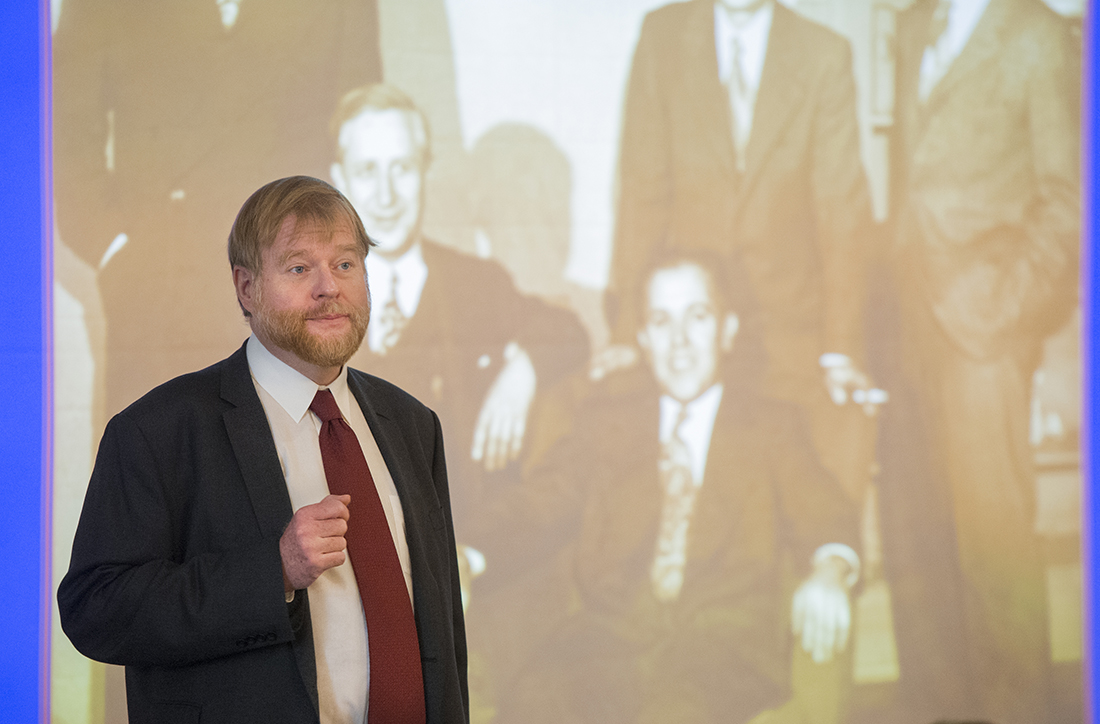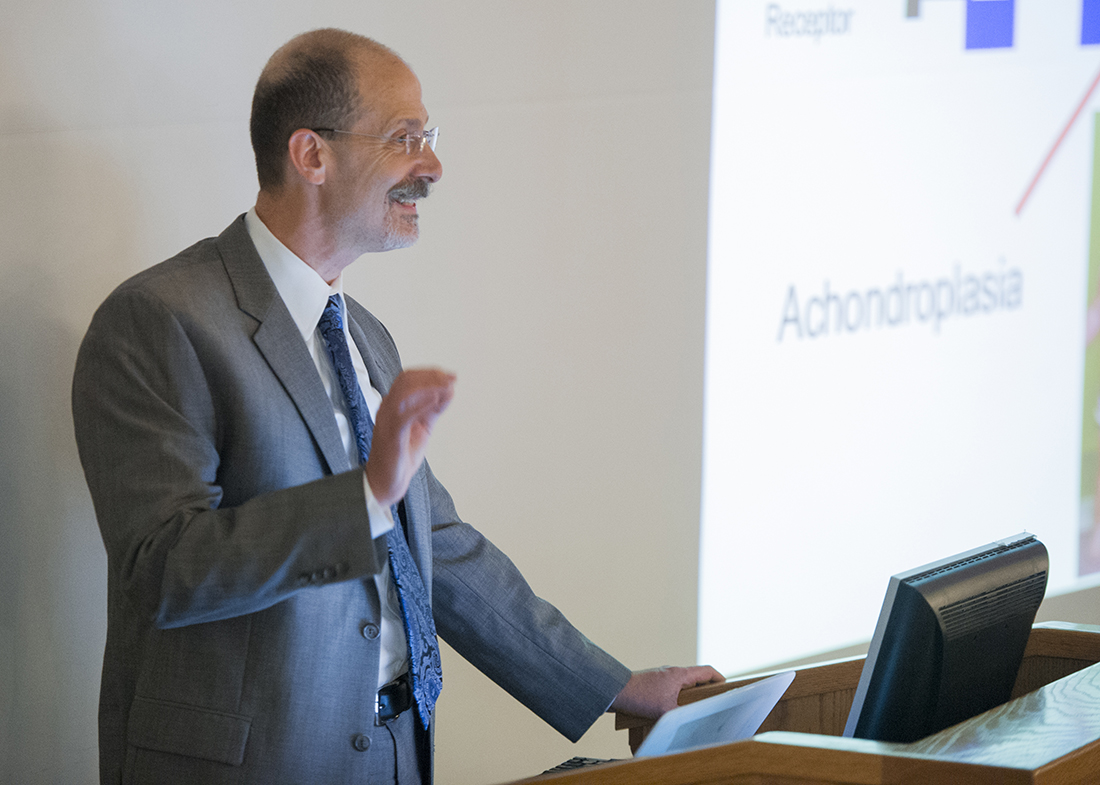Advancing craniofacial medicine

Do face transplants fit their recipients’ personalities? Dr. Sander Gilman, professor of psychiatry and Distinguished Professor in Liberal Arts and Sciences at Emory University, entertained this and other questions as he led off an afternoon of speakers Feb. 20 at Texas A&M College of Dentistry’s craniofacial medicine symposium.
Exploring the history and psychology behind the “authentic face,” Gilman examined ethical considerations involved in everything from nose jobs to face transplants, leaving the audience to ponder the potential influence of race, age and gender in decisions about candidate selection for face transplants.

Dr. Alex Kane, division director of pediatric and craniofacial surgery at Children’s Medical Center and professor of plastic surgery at UT Southwestern Medical Center, offered his perspective on restoring form and function to individuals with acquired or congenital defects. Contemplating issues surrounding a definition of “normal” facial structure, he discussed the ladder of reconstructive procedure options and emphasized the team approach required in treatment.
Dr. David Carlson, Regents Professor in biomedical sciences, and Dr. Thomas Diekwisch, director of the Center for Craniofacial Research and Diagnosis and professor and head of periodontics, gave presentations addressing the potential for modern research in advancing treatment, while Suzanne Verma, assistant professor in oral and maxillofacial surgery and certified clinical anaplastologist, presented on prosthetic rehabilitation of craniofacial deformities.
The symposium concluded with Dean Lawrence Wolinsky’s announcement of the new $1 million Bernhard Gottlieb Endowed Chair in Craniofacial Research and its first holder, Diekwisch, whose insightful presentation on Gottlieb brought this eminent scientist’s experiences to life.